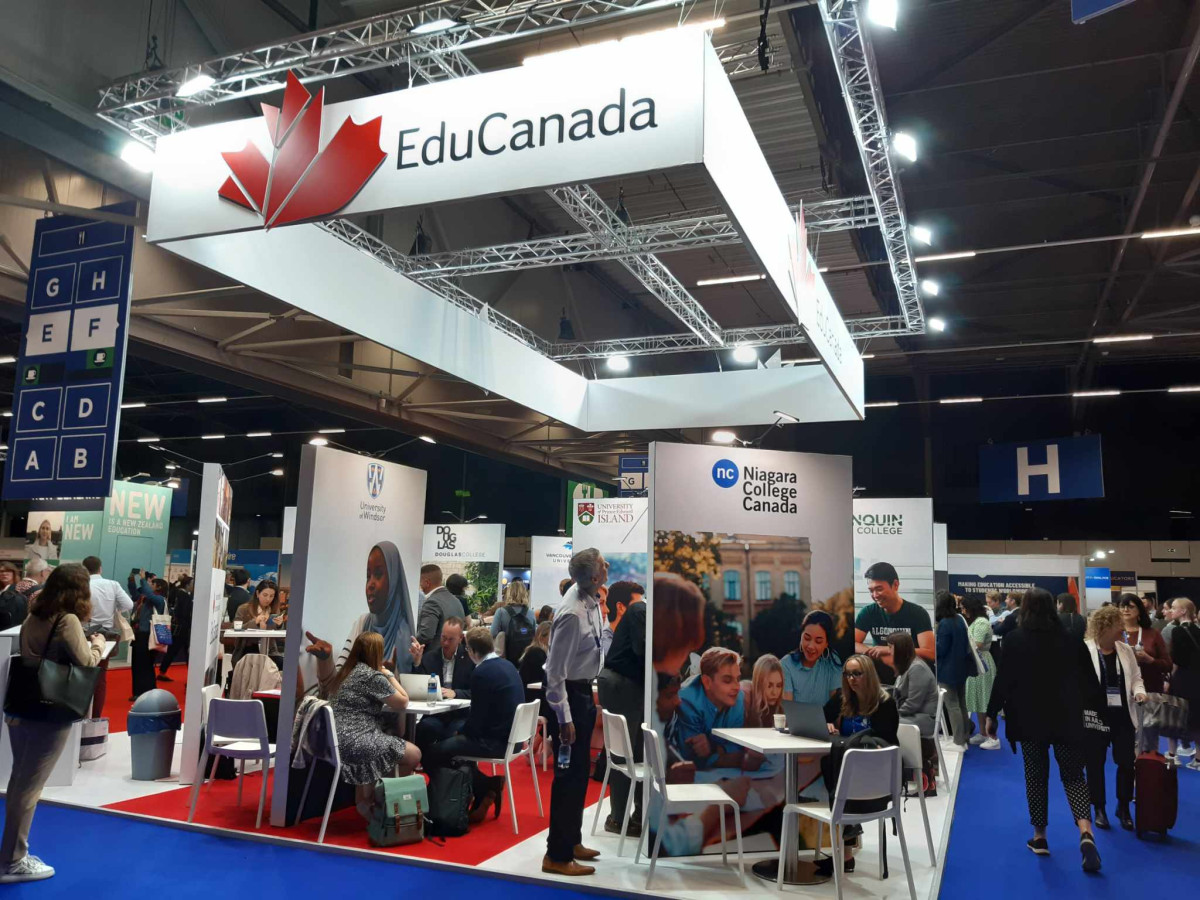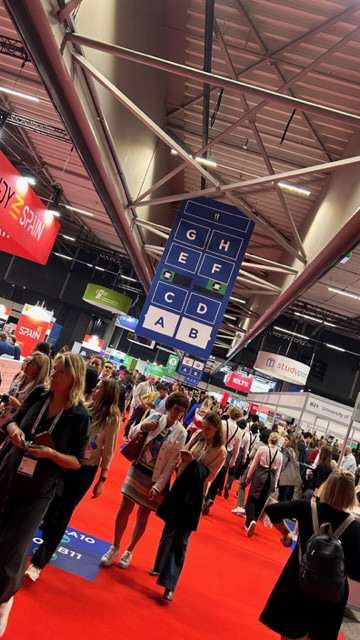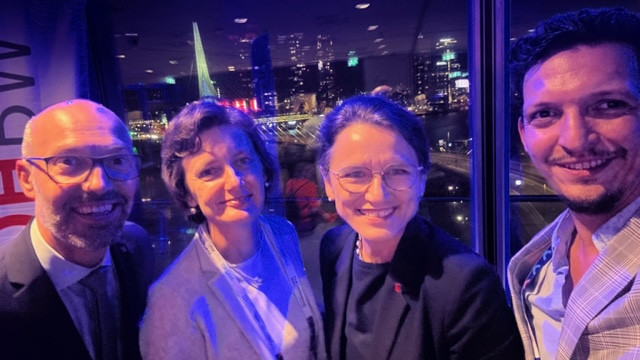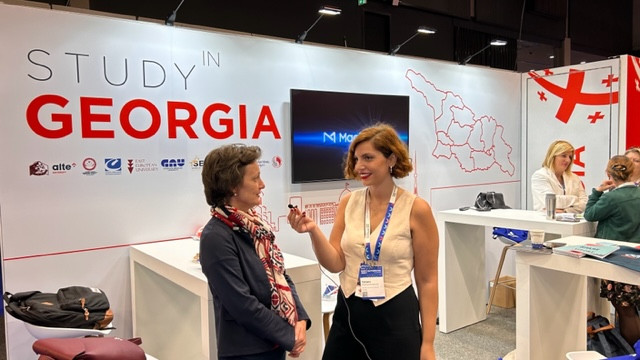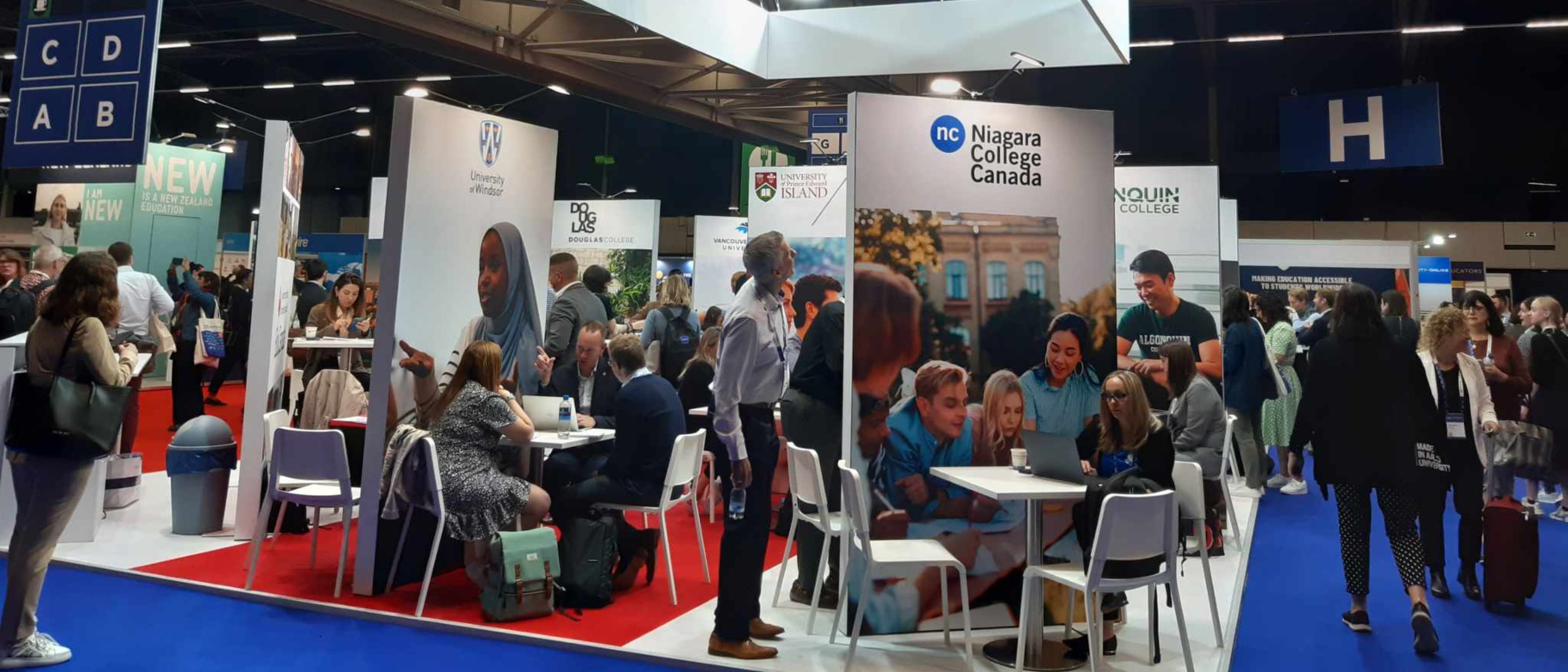
2023-10-11 14:48
The European Association for International Education (EAIE) held this year's international higher education conference and exhibition in Rotterdam from 26-29 September 2023, where our university was also represented.
The four-day conference provided an opportunity to bring together representatives of universities from around the world and service providers supporting the internationalisation of higher education, with a view to optimising and continuously improving processes.
At the opening of the conference, it was said that the participants are members of a strong community who are in the privileged and unique position to work on the internationalisation of higher education and its future, who are committed to the internationalisation of higher education in Europe and beyond. Among the tasks of the professionals present at the event was to build new relationships, inspire each other, learn from each other and find better solutions to the challenges of mobility. They built an "ecosystem" where fresh ideas and best practices can flourish, providing a platform for learning, networking and knowledge exchange. The exhibition was a great opportunity for both academic and non-academic professionals to meet face-to-face, exchange experiences and plan strategies.
The conference focused on Generation Z; the generation born between 1995 and 2010, who will be in the majority in the labour market in a few years' time. Two key characteristics are worth highlighting: on the one hand, this generation is all about being active, and in most cases they are already using digital tools. On the other hand, this generation has unfortunately grown up with various crises. The climate crisis, health problems and environmental challenges are forcing this generation to instinctively develop survival strategies, which can be “fight mode”, “flight mode” or “freeze mode”. This means that some become aggressive out of frustration, some want to know nothing, close their ears, and others are paralysed by anxiety and fear of the future. The challenge is for the older generation to help the young, to teach and equip them with the techniques and tools to deal effectively with crises.
JvNU was represented by Dr. Norberta Sági, Vice Rector for Education, Habib Kohi, Head of the JvNU International Office, and István Pesti, Project Manager of EU4DUAL. During the conference, contacts were established with representatives from universities in India, Singapore, South Korea, France, Germany and Georgia, which will open up opportunities for further cooperation, such as student and faculty exchanges, joint training and projects. In addition to networking, JvNU representatives participated in lectures and workshops that addressed questions such as where higher education is heading in its internationalisation, how it is affected by constantly evolving technology and technology, and how universities can manage and anticipate these changes.

